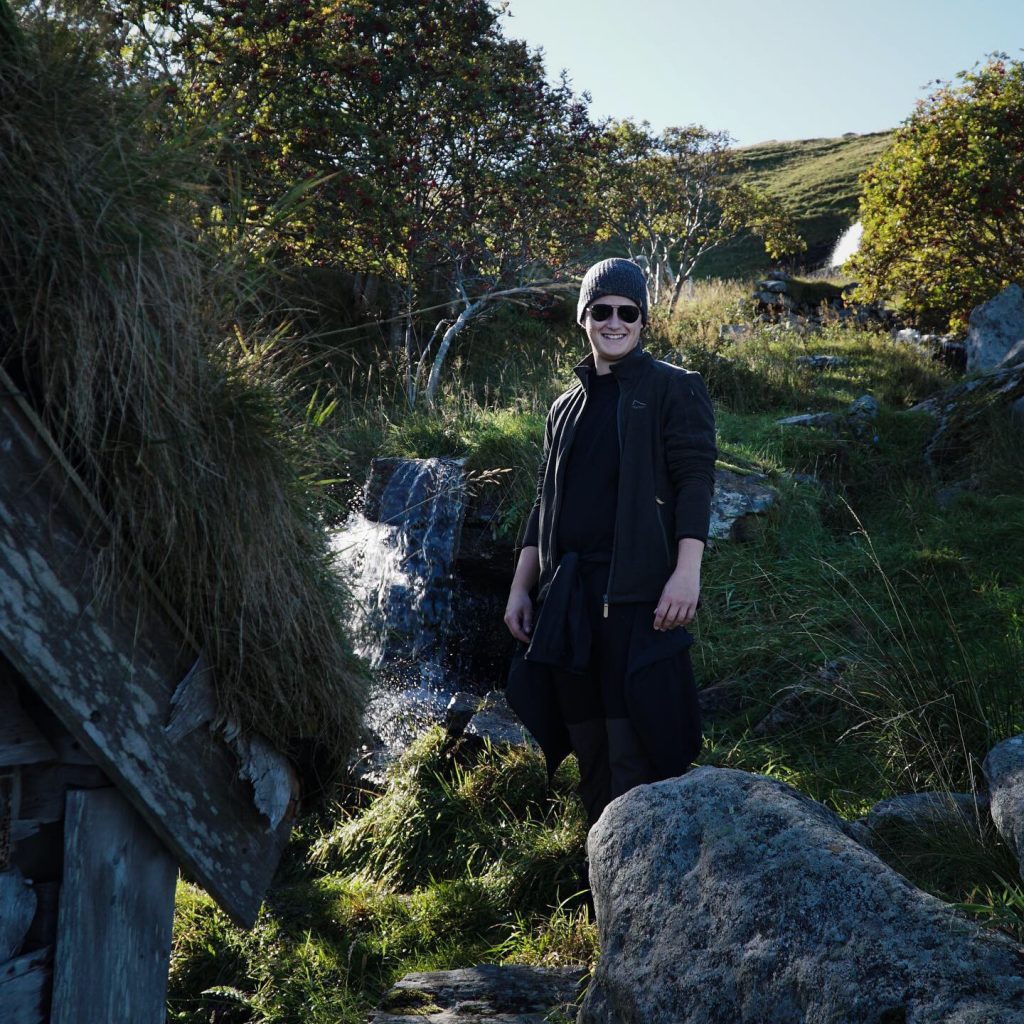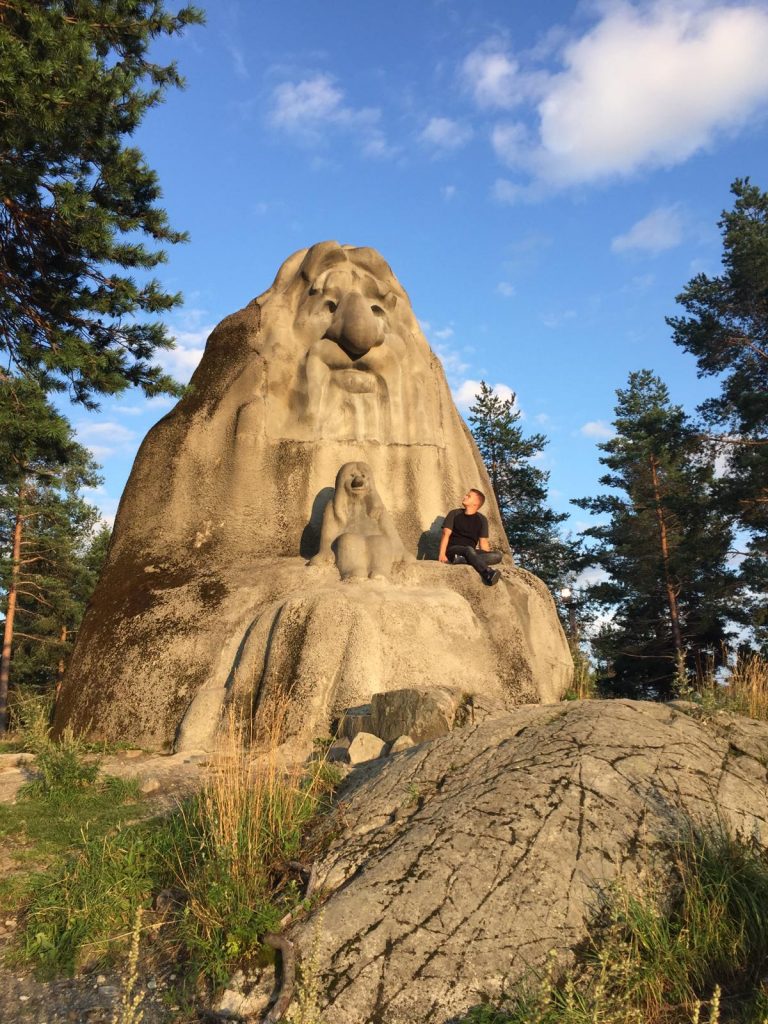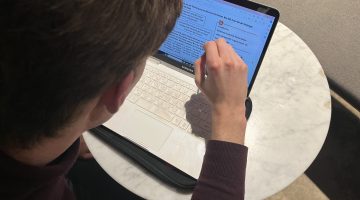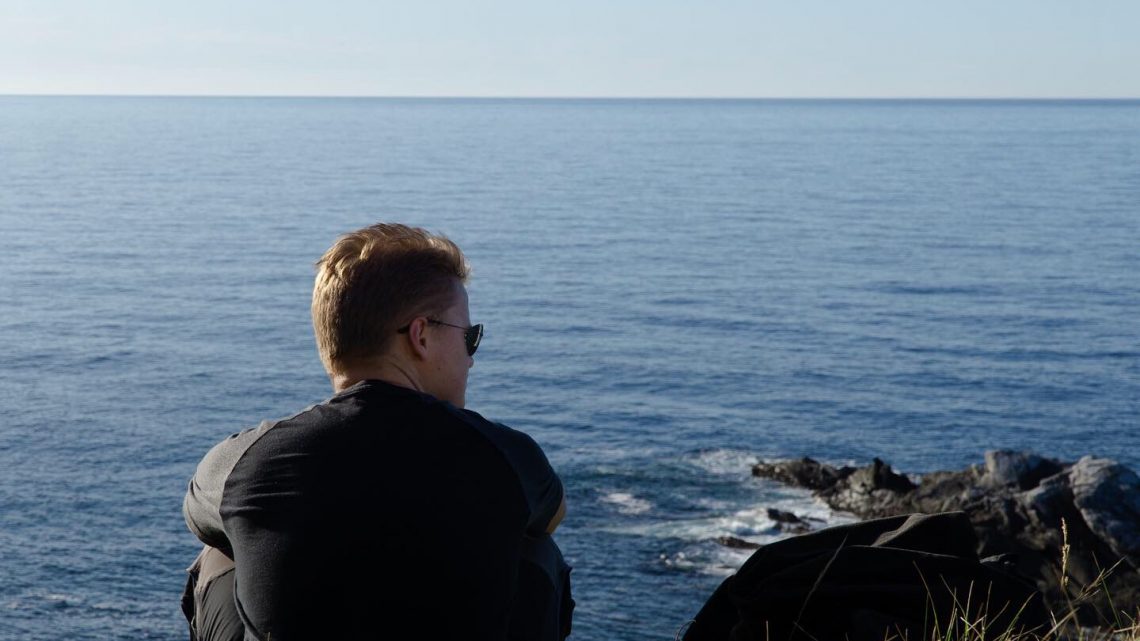…says Silas Ketels, student at the Fachhochschule Kiel, about his decision to go to Norway. The 20-year-old, who moved to Kiel three years ago to study Public Relations and Corporate Communications, originally planned to study abroad for one semester. But as you may guess, it turned out differently. Only a few weeks after his arrival at the Volda University College in Norway, he applied for an extension of his stay – the 20-year-old was so thrilled that a quick return was not an option.
I wanted to know more about his intentions to study abroad, the reason why he picked Norway as a destination and which advices he can give to students who consider going there.
Silas, thank you for your time! Do you remember the moment you decided to go abroad during your studies? If yes, what was the trigger?
I made that decision a year ago during my third semester. Earlier in my studies, there was an information event at which we were being told that studying abroad would be highly recommended and also strongly supported by the Fachhochschule Kiel. What eventually triggered me, was a class that was given by Thomas Lewe (associate professor of the Department of Media and Journalism at Volda University College). He told us a bit about his home institution in Norway and showed us its corporate video. I don’t know, its whole appearance impressed me in a way! After class, we talked some more and from that point, the idea of studying in Volda was really stuck in my mind. What I really liked about it, was the personal aspect. Because of the class, I already had a contact person and an impression of what I had to expect.
Were you in contact with other people who previously had studied in Volda?
No, I hadn’t really spoken to anyone but Thomas (Lewe). However, a friend of mine who would go to Volda as well, knew some people who had previously studied there. They met up from time to time and in this way, I got some information as well.
How many of your fellow students went to Volda with you? Do you feel this was helpful to you or rather an obstacle?
Oh, there were quite a few! We were four people from my study programme, some others from “Multimedia Production”, and some postgraduates, too. Most of my neighbours of the last semester were Germans. It’s nice, but you have to try a little harder to get in touch with international students to avoid being stuck in your own “bubble”. Obviously, people tend to talk to those who speak the same language, because it’s temptingly easy. When you’re speaking English all the time, you’re tired by the end of the day. However, as soon as someone who did not understand German was in the room, everybody switched to English immediately. After a while, it becomes a mechanism, and you’re just talking in English to everybody, even among Germans.
How and where do you live in Volda? How did you organise your accommodation?
I live in an accommodation that collaborates with the university. If you are an international student in Volda, you are guaranteed to get a room. From the time that I received the acceptance letter from the University in Volda, there were people who guided me through the process. Where to register, what to do, they helped me with the whole thing. We even had the choice between different student accommodations.
Do you have the accommodation to yourself or do you share it with somebody else?
Usually, there are small apartments with two rooms and a shared bathroom. There are generally two people in one apartment. The kitchen is down the hall, and you’re sharing it with around six to seven other residents. Somehow, I was lucky and got an apartment with a friend. It’s just the two of us – for both the bathroom and the kitchen.
What are the costs of living like in Norway, especially in comparison to Germany?
It’s significantly more expensive than in Germany. Norway is considered one of the most expensive countries in Europe and you really see that in your everyday life, especially when buying groceries. However, students receive the highest level of the ERASMUS+ support. As an international, be prepared to drink rather little alcohol. And for the smokers among you, I recommend quitting before departing to Norway… (laughs).
How do you finance your stay abroad? Is the ERASMUS+ support enough to cover additional costs?
Again, students who go to Norway get the highest level of ERASMUS+ support since the country is so expensive – so that is quite helpful. Additionally, I worked a while before going to Norway and saved this money for my time abroad. When you’re preparing yourself properly, you’ll be absolutely able to make ends meet.

Did you experience a culture shock or a thing that surprised you in the beginning of your stay?
I had really expected something like that but there wasn’t really anything too spectacular. After three weeks of being in Norway, I already knew that I wanted to extend my stay. Still, I waited some time until I applied officially to a second semester, because I was afraid that my enthusiasm was caused by the first excitement I experienced at that time. What surprised me a little bit, is the fact that you barely get to know locals when studying abroad – at least in my case. However, I won’t blame anybody for this, because if you think about it: How many international students do you really meet in your university at home?
With whom do you spend your leisure time if not with Norwegian people?
The university in Volda has many international students, I think it must be around 100. Therefore, most of my friends in Volda are other exchange students. There is a “meeting point” in the university that is especially intended for internationals. This makes it extra easy to get to know new people.
What differences between the Norwegian university and the Fachhochschule Kiel did you experience?
I spent more time in the university than I do in Germany. I guess, this is because the learning atmosphere is a different one in Norway – The school has more rooms and spaces that students can “rent” and use for studying. Some are for individuals; some are for groups… This makes it a more comfortable environment for studying! Plus, the university’s website is more structured than ours at home and offers a variety of tools on top of that. I have the impression that Norwegian people are far ahead of us in digital issues.
How well do you get along with the courses?
Quite well, actually. This might be the case because I mainly picked courses that I had previous knowledge and great interest in. I took a politics class during my “Abitur” for instance, and because of that, I decided to keep focussing on this when in Norway.
Did you check other countries, cities or partner universities before choosing Volda in Norway as your favourite destination?
To be honest: I was so enthusiastic about Volda that I knew from the beginning that I wanted to go there. Still, I am aware that students should really check all options before choosing a destination!
Did you have the chance to travel while being in Norway? Did family or friends come visit you?
Yes, I’ve been travelling a lot so far. Instead of flying, I took the bus to go to Volda and I took advantage of it by doing a stop in Oslo for a few days. On top of that, I visited Bergen, went to see the Atlantic Ocean, visited a few islands and went camping. I only had two to three days of classes during the week, so I had a lot of time to explore the country. There were different student associations that offered trips to popular destinations. I haven’t had any visitors so far, but many of my friends are planning to come. The good thing is that there is no time pressure since I’m staying for a second semester.

Do you have something that you would describe as “the best” about your semester abroad (whether it’s a situation or something general)?
I experienced a specific moment that was really memorable to me. We were a group of friends who booked a holiday home at the Atlantic Road. From this house, we had a stunning view over the ocean. There was a jacuzzi next to the building. While we sat in there in the evening, we could watch the Northern Lights above the Atlantic Ocean. This view is hard to describe in words. And even if it’s just for moments like these, it is never wrong to dare to leave home for some time and go abroad.
The answer to this question might be relatively predictable, but I’m going to ask it anyway. Would you make the same decision again to go to Volda?
Definitely! I mean, there is a reason for the extension of my stay…
Final question: Do you have any advice that you would like to give to students who are interested in a semester abroad in Volda?
So, if you decide to go to Volda and like to drink alcohol occasionally: Bring some from home. Same for cigarettes. Secondly, don’t expect to spend much time with locals. BUT: I think it’s a MUST that you actively try to get in contact with people. Go to the university, talk to people, become part of a student organisation or go to their events! There’s so much you can do, and it would be such a shame not to benefit from all these chances.
Interview: Marilena Schmitz
Got curious? Click below to learn more about how to organise your own semester abroad, who to contact, and what else is worth knowing.
![FHews – [ fju:s]](http://fhews.de/wp-content/uploads/2015/05/fhews_logo2_3B8ACC.jpg)










No Comment